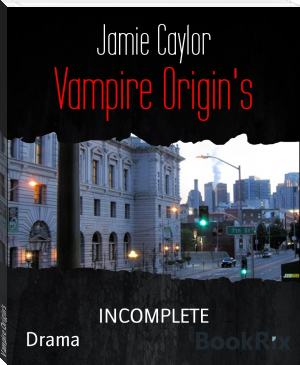All For Love - John Dryden (rm book recommendations TXT) 📗

- Author: John Dryden
- Performer: -
Book online «All For Love - John Dryden (rm book recommendations TXT) 📗». Author John Dryden
ALEXAS. You have your full instructions, now advance, Proclaim your orders loudly.
SERAPION. Romans, Egyptians, hear the queen’s command. Thus Cleopatra bids: Let labour cease; To pomp and triumphs give this happy day, That gave the world a lord: ‘tis Antony’s. Live, Antony; and Cleopatra live! Be this the general voice sent up to heaven, And every public place repeat this echo.
VENTIDIUS. Fine pageantry! [Aside.]
SERAPION. Set out before your doors The images of all your sleeping fathers, With laurels crowned; with laurels wreath your posts, And strew with flowers the pavement; let the priests Do present sacrifice; pour out the wine, And call the gods to join with you in gladness.
VENTIDIUS. Curse on the tongue that bids this general joy! Can they be friends of Antony, who revel When Antony’s in danger? Hide, for shame, You Romans, your great grandsires’ images, For fear their souls should animate their marbles, To blush at their degenerate progeny.
ALEXAS. A love, which knows no bounds, to Antony, Would mark the day with honours, when all heaven Laboured for him, when each propitious star Stood wakeful in his orb, to watch that hour And shed his better influence. Her own birthday Our queen neglected like a vulgar fate, That passed obscurely by.
VENTIDIUS. Would it had slept, Divided far from his; till some remote And future age had called it out, to ruin Some other prince, not him!
ALEXAS. Your emperor, Though grown unkind, would be more gentle, than To upbraid my queen for loving him too well.
VENTIDIUS. Does the mute sacrifice upbraid the priest! He knows him not his executioner. Oh, she has decked his ruin with her love, Led him in golden bands to gaudy slaughter, And made perdition pleasing: She has left him The blank of what he was. I tell thee, eunuch, she has quite unmanned him. Can any Roman see, and know him now, Thus altered from the lord of half mankind, Unbent, unsinewed, made a woman’s toy, Shrunk from the vast extent of all his honours, And crampt within a corner of the world? O Antony! Thou bravest soldier, and thou best of friends! Bounteous as nature; next to nature’s God! Couldst thou but make new worlds, so wouldst thou give them, As bounty were thy being! rough in battle, As the first Romans when they went to war; Yet after victory more pitiful Than all their praying virgins left at home!
ALEXAS. Would you could add, to those more shining virtues, His truth to her who loves him.
VENTIDIUS. Would I could not! But wherefore waste I precious hours with thee! Thou art her darling mischief, her chief engine, Antony’s other fate. Go, tell thy queen, Ventidius is arrived, to end her charms. Let your Egyptian timbrels play alone, Nor mix effeminate sounds with Roman trumpets, You dare not fight for Antony; go pray And keep your cowards’ holiday in temples. [Exeunt ALEXAS, SERAPION.]
Re-enter the Gentleman of M. ANTONY
2 Gent. The emperor approaches, and commands, On pain of death, that none presume to stay.
1 Gent. I dare not disobey him. [Going out with the other.]
VENTIDIUS. Well, I dare. But I’ll observe him first unseen, and find Which way his humour drives: The rest I’ll venture. [Withdraws.]
Enter ANTONY, walking with a disturbed motion before he speaks
ANTONY. They tell me, ‘tis my birthday, and I’ll keep it With double pomp of sadness. ‘Tis what the day deserves, which gave me breath. Why was I raised the meteor of the world, Hung in the skies, and blazing as I travelled, ‘Till all my fires were spent; and then cast downward, To be trod out by Caesar?
VENTIDIUS. [aside.] On my soul, ‘Tis mournful, wondrous mournful!
ANTONY. Count thy gains. Now, Antony, wouldst thou be born for this? Glutton of fortune, thy devouring youth Has starved thy wanting age.
VENTIDIUS. How sorrow shakes him! [Aside.] So, now the tempest tears him up by the roots, And on the ground extends the noble ruin. [ANTONY having thrown himself down.] Lie there, thou shadow of an emperor; The place thou pressest on thy mother earth Is all thy empire now: now it contains thee; Some few days hence, and then ‘twill be too large, When thou’rt contracted in thy narrow urn, Shrunk to a few ashes; then Octavia (For Cleopatra will not live to see it), Octavia then will have thee all her own, And bear thee in her widowed hand to Caesar; Caesar will weep, the crocodile will weep, To see his rival of the universe Lie still and peaceful there. I’ll think no more on’t.
ANTONY. Give me some music, look that it be sad. I’ll soothe my melancholy, till I swell, And burst myself with sighing.— [Soft music.] ‘Tis somewhat to my humour; stay, I fancy I’m now turned wild, a commoner of nature; Of all forsaken, and forsaking all; Live in a shady forest’s sylvan scene, Stretched at my length beneath some blasted oak, I lean my head upon the mossy bark, And look just of a piece as I grew from it; My uncombed locks, matted like mistletoe, Hang o’er my hoary face; a murm’ring brook Runs at my foot.
VENTIDIUS. Methinks I fancy Myself there too.
ANTONY. The herd come jumping by me, And fearless, quench their thirst, while I look on, And take me for their fellow-citizen. More of this image, more; it lulls my thoughts. [Soft music again.]
VENTIDIUS. I must disturb him; I can hold no longer. [Stands before him.]
ANTONY. [starting up]. Art thou Ventidius?
VENTIDIUS. Are you Antony? I’m liker what I was, than you to him I left you last.
ANTONY. I’m angry.
VENTIDIUS. So am I.
ANTONY. I would be private: leave me.
VENTIDIUS. Sir, I love you, And therefore will not leave you.
ANTONY. Will not leave me! Where have you learnt that answer? Who am I?
VENTIDIUS. My emperor; the man I love next Heaven: If I said more, I think ‘twere scare a sin: You’re all that’s good, and god-like.
ANTONY. All that’s wretched. You will not leave me then?
VENTIDIUS. ‘Twas too presuming To say I would not; but I dare not leave you: And, ‘tis unkind in you to chide me hence So soon, when I so far have come to see you.
ANTONY. Now thou hast seen me, art thou satisfied? For, if a friend, thou hast beheld enough; And, if a foe, too much.
VENTIDIUS. Look, emperor, this is no common dew. [Weeping.] I have not wept this forty years; but now My mother comes afresh into my eyes; I cannot help her softness.
ANTONY. By heavens, he weeps! poor good old man, he weeps! The big round drops course one another down The furrows of his cheeks.—Stop them, Ventidius, Or I shall blush to death, they set my shame, That caused them, full before me.
VENTIDIUS. I’ll do my best.
ANTONY. Sure there’s contagion in the tears of friends: See, I have caught it too. Believe me, ‘tis not For my own griefs, but thine.—Nay, father!
VENTIDIUS. Emperor.
ANTONY. Emperor! Why, that’s the style of victory; The conqu’ring soldier, red with unfelt wounds, Salutes his general so; but never more Shall that sound reach my ears.
VENTIDIUS. I warrant you.
ANTONY. Actium, Actium! Oh!—
VENTIDIUS. It sits too near you.
ANTONY. Here, here it lies a lump of lead by day, And, in my short, distracted, nightly slumbers, The hag that rides my dreams.—
VENTIDIUS. Out with it; give it vent.
ANTONY. Urge not my shame. I lost a battle,—
VENTIDIUS. So has Julius done.
ANTONY. Thou favour’st me, and speak’st not half thou think’st; For Julius fought it out, and lost it fairly. But Antony—
VENTIDIUS. Nay, stop not.
ANTONY. Antony— Well, thou wilt have it,—like a coward, fled, Fled while his soldiers fought; fled first, Ventidius. Thou long’st to curse me, and I give thee leave. I know thou cam’st prepared to rail.
VENTIDIUS. I did.
ANTONY. I’ll help thee.—I have been a man, Ventidius.
VENTIDIUS. Yes, and a brave one! but—
ANTONY. I know thy meaning. But I have lost my reason, have disgraced The name of soldier, with inglorious ease. In the full vintage of my flowing honours, Sat still, and saw it prest by other hands. Fortune came smiling to my youth, and wooed it, And purple greatness met my ripened years. When first I came to empire, I was borne On tides of people, crowding to my triumphs; The wish of nations, and the willing world Received me as its pledge of future peace; I was so great, so happy, so beloved, Fate could not ruin me; till I took pains, And worked against my fortune, child her from me, And returned her loose; yet still she came again. My careless days, and my luxurious nights, At length have wearied her, and now she’s gone, Gone, gone, divorced for ever. Help me, soldier, To curse this madman, this industrious fool, Who laboured to be wretched: Pr’ythee, curse me.
VENTIDIUS. No.
ANTONY. Why?
VENTIDIUS. You are too sensible already Of what you’ve done, too conscious of your failings; And, like a scorpion, whipt by others first To fury, sting yourself in mad revenge. I would bring balm, and pour it in your wounds, Cure your distempered mind, and heal your fortunes.
ANTONY. I know thou would’st.
VENTIDIUS. I will.
ANTONY. Ha, ha, ha, ha!
VENTIDIUS. You laugh.
ANTONY. I do, to see officious love. Give cordials to the dead.
VENTIDIUS. You would be lost, then?
ANTONY. I am.
VENTIDIUS. I say you are not. Try your fortune.
ANTONY. I have, to the utmost. Dost thou think me desperate, Without just cause? No, when I found all lost Beyond repair, I hid me from the world, And learnt to scorn it here; which now I do So heartily, I think it is not worth The cost of keeping.
VENTIDIUS. Caesar thinks not so; He’ll thank you for the gift he could not take. You would be killed like Tully, would you? do, Hold out your throat to Caesar, and die tamely.
ANTONY. No, I can kill myself; and so resolve.
VENTIDIUS. I can die with you too, when time shall serve; But fortune calls upon us now to live, To fight, to conquer.
ANTONY. Sure thou dream’st, Ventidius.
VENTIDIUS. No; ‘tis you dream; you sleep away your hours In desperate sloth, miscalled philosophy. Up, up, for honour’s sake; twelve legions wait you, And long to call you chief: By painful journeys I led them, patient both of heat and hunger, Down form the Parthian marches to the Nile. ‘Twill do you good to see their sunburnt faces, Their scarred cheeks, and chopt hands: there’s virtue in them. They’ll sell those mangled limbs at dearer rates Than yon trim bands can buy.
ANTONY. Where left you them?
VENTIDIUS. I said in Lower Syria.
ANTONY. Bring them hither; There may be life in these.
VENTIDIUS. They will not come.
ANTONY. Why didst thou mock my hopes with promised aids, To double my despair? They’re mutinous.
VENTIDIUS. Most firm and loyal.
ANTONY. Yet they will not march To succour me. O trifler!
VENTIDIUS. They petition You would make haste to head them.
ANTONY. I’m besieged.
VENTIDIUS. There’s but one way shut up: How came I hither?
ANTONY. I will not stir.
VENTIDIUS. They would perhaps desire A better reason.
ANTONY. I have never used My





Comments (0)